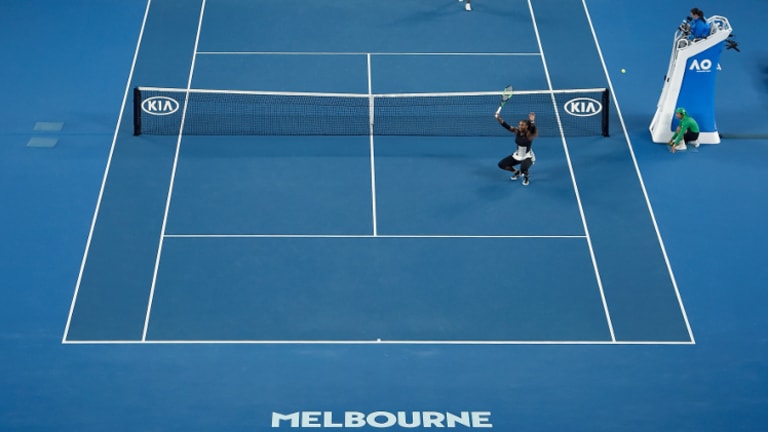Serena Williams typically has no trouble directing her fist-pumps and “Come on!”s in the direction of her opponent. But on Saturday, when she needed to vent, she turned toward the back of the court instead. Her words were as vehement as always, maybe more so, but she kept them mostly under her breath.
Venus Williams is usually the picture of silent, unflappable cool, even when things aren’t going her way. On Saturday, after missing key shots, she shook her head and glared, stood with her hands on her hips in dramatic frustration, and even shot out a few angry words as she waited to receive serve.
Can you tell that Serena and Venus were facing each other? Many of us had hoped that the 28th matchup between the two sisters would produce something special. After all, it was their first Grand Slam final against each other in seven years; it marked the unlikely return of Venus, at 36, to the pinnacle of the sport; and it gave Serena a chance to pass Steffi Graf on the all-time major-title list with 23.
But Serena-Venus XXVIII was like many other all-Williams contests: awkward, scratchy, hard to watch and probably harder to play. There’s tension in their matches, but never release, because the success of one member of the family always comes at the expense of another. Serena was so tense to start this one that she smashed her racquet in the third game, and double-faulted three times in the fourth.
